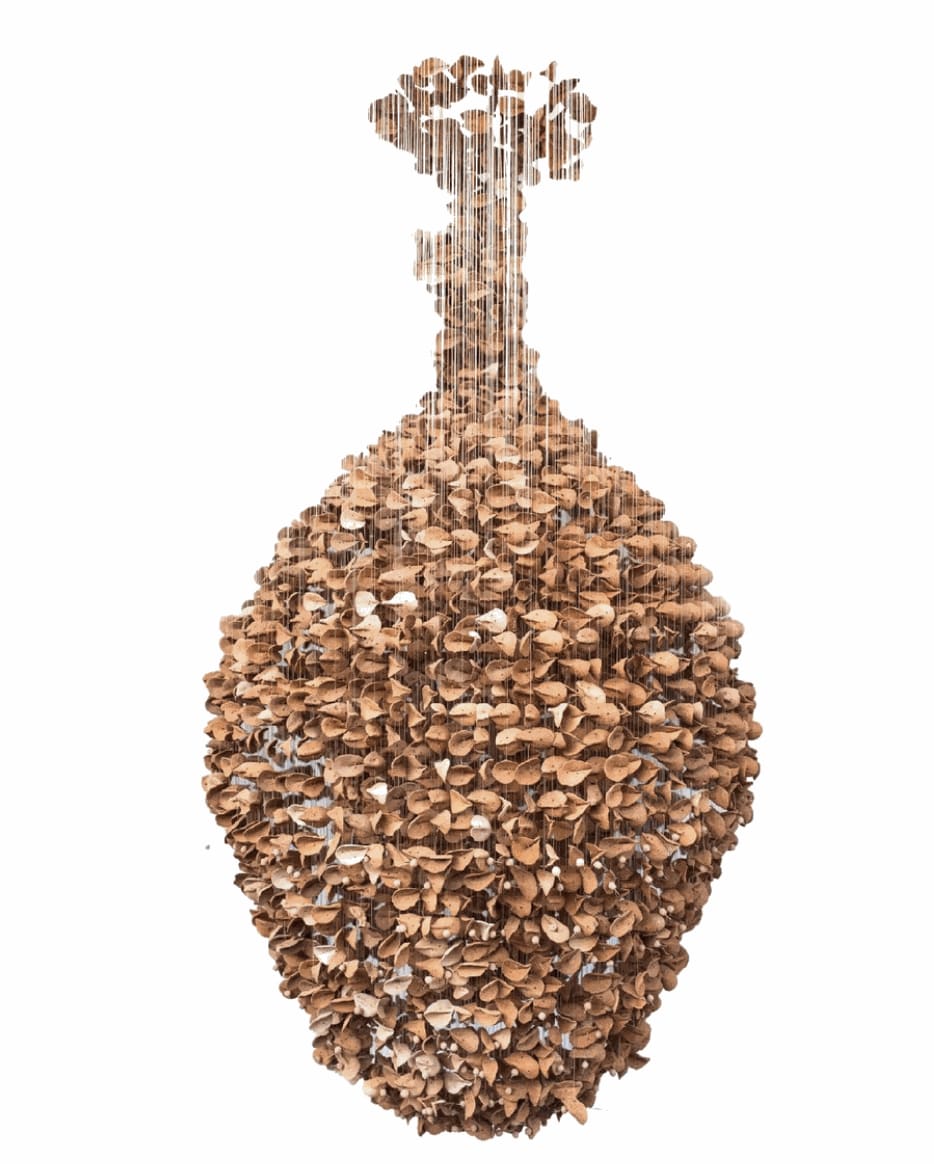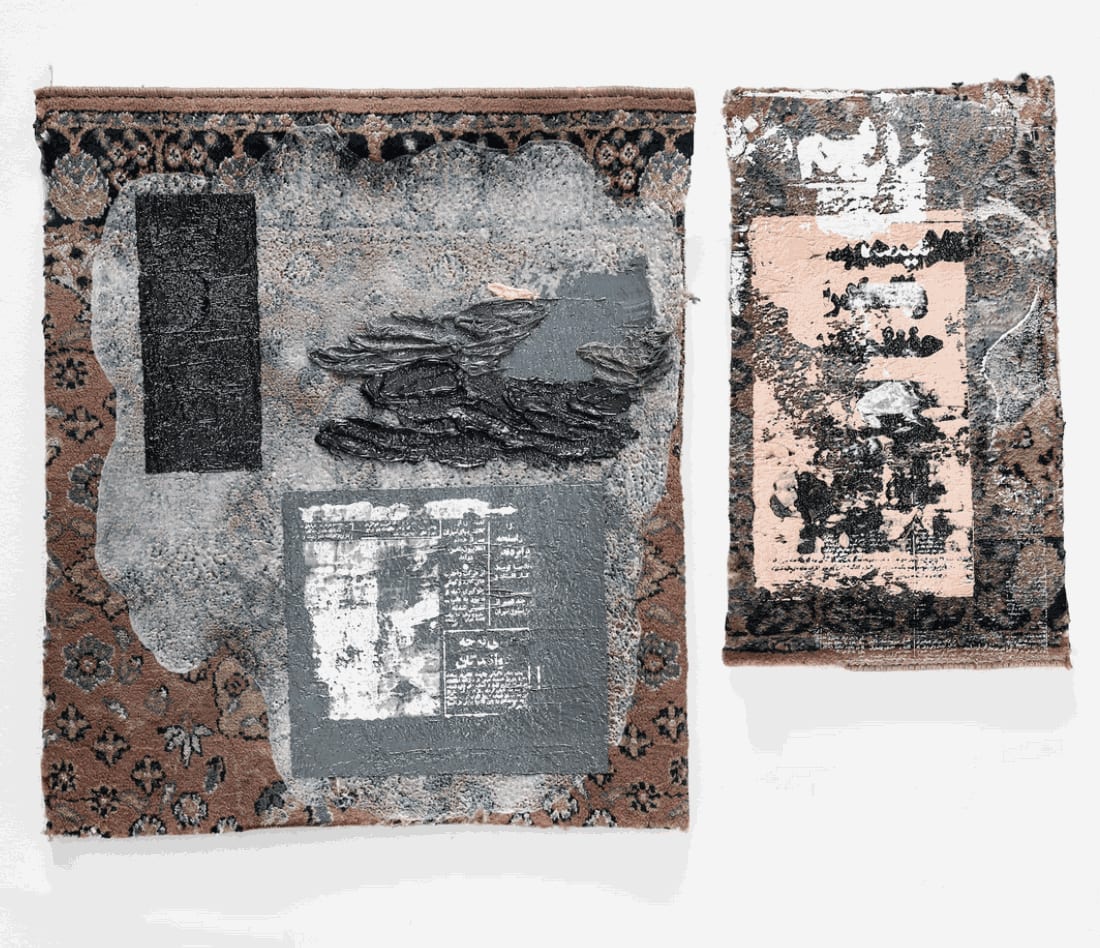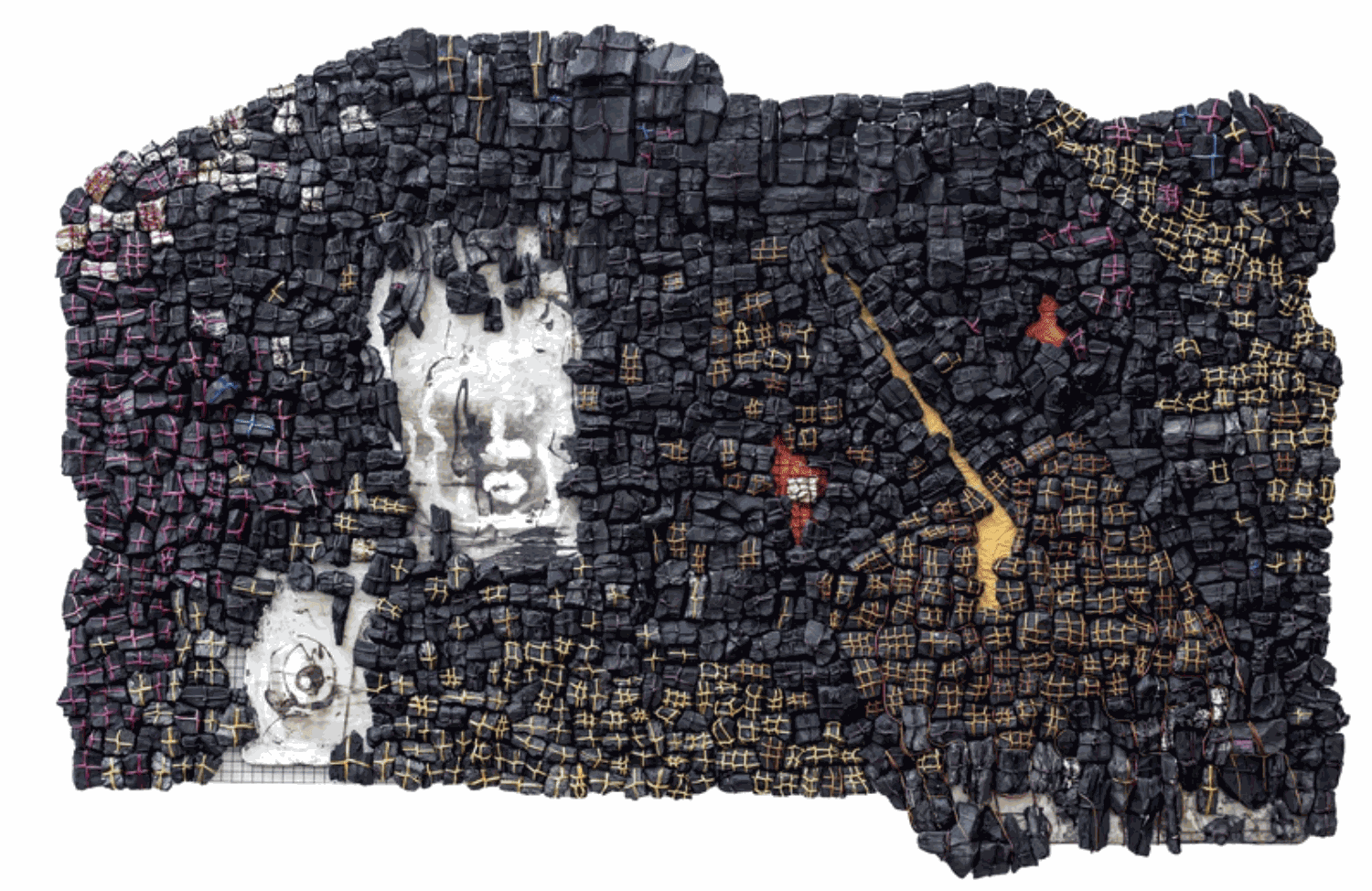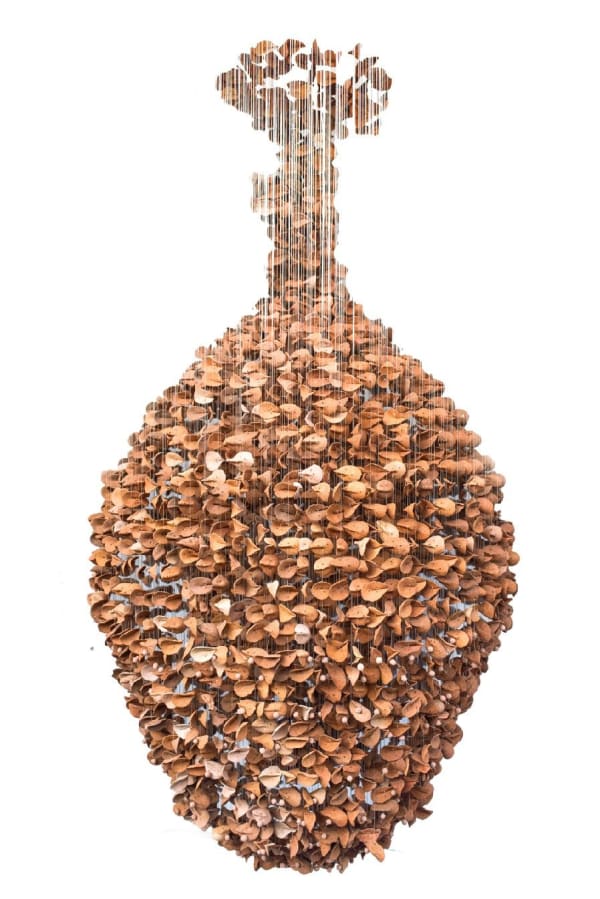1-54 Marrakech: Ngozi-Omeje Ezema | Sepideh Mehraban | Eva Obodo
kó is pleased to PARTICIPATE at 1-54 Marrakech, featuring artists Ngozi-Omeje Ezema, Sepideh Mehraban, and Eva Obodo.
These artists experiment with non-traditional media, including terracotta, carpet, and jute, to interrogate questions of memory, belonging, and place. 1-54 Marrakech takes place at La Mamounia, Avenue Bad Jdid, Marrakech, Morocco.

Ngozi-Omeje Ezema (b. 1979, Nigeria) is a ceramic artist who creates immersive installations formed from suspended pieces of terracotta. Her work often takes the shape of objects with metaphorical connotations and symbolic meanings. Taking her personal experiences as a point of departure, her work addresses issues relating to identity, family and the female body. She often references the shape of the vessel in various ways, taking inspiration from the forms and materials of the natural environment. Using transparent nylon thread to hang the terracotta fragments into a whole, Ezema plays with the viewer’s perception and interaction.
Ezema received her BA in fine and Applied Arts and MFA in ceramics from the University of Nigeria, Nsukka, where she currently serves as a lecturer. She has participated in exhibitions, residencies, and special projects at the Centre for Contemporary Art (CCA) Lagos; the First International Biennale in Centra China; Le Pinceau De L’Integration in Senegal; Art X Lagos; Abu Dhabi Art Fair; Goethe-Institut Nigeria (Nsukka), Sevshoon Art Centre (Seattle), Goethe Institute Ghana (Kumasi), and the Trianglar Art Trust (Jos). In 2019, Ezema won the High Excellence Award at the Cheongju International Craft Biennale in South Korea. Her most recent solo exhibition, Boundless Vases, was held at kó in 2021.

Sepideh Mehraban (b. 1986, Tehran, Iran) is a multimedia artist based in Cape Town, South Africa, who explores the intersections of memory and place through the historical lens of her home country, Iran. In Until the Lions, Mehraban was inspired by the tradition of Persian carpets, using them as a canvas to dissect Iran’s political and cultural history. The series reinterprets Iran’s 1979 revolution, a movement encompassing diverse ideological factions. Despite their united effort to overthrow the monarchy, the revolution resulted in the establishment of an Islamic fundamentalist-led theocracy, stifling the initial hopes of democracy. Mehraban combines text, figuration, and abstraction on found carpets, symbolising the accumulation of experiences and the veiling of truth. She employs glue and screen printing to obscure archival newspaper articles, mimicking acts of censorship. The series metaphorically represents the stains of history, hinting at both the damage wrought by time and the potential for resilience through the reclamation of memory. The title of the series, borrowed from Chinua Achebe’s Things Fall Apart, emphasises the importance of marginalized voices in shaping historical narratives.
Mehraban obtained a BFA and MFA from the University of Alzahra in Tehran, Iran. She obtained a postgraduate diploma in Fine Arts followed by a second Masters in Visual Arts degree from Michaelis School of Fine Arts in Cape Town, South Africa. In 2022, she completed her thesis and solo exhibition for her PhD in Philosophy in Visual Arts at the University of Stellenbosch. Mehraban has held solo exhibitions at Goodman Gallery, Johannesburg (2024); WHATIFTHEWORLD, Cape Town (2023); SMAC Gallery, Cape Town (2021); SMITH Studio, Cape Town *2019), and Golestan Gallery, Tehran (2015). In 2019, Mehraban curated the group exhibition Cape to Tehran at Gallery MOMO, Cape Town. Her work is included in collections including Alzahra University, Tehran; University of Cape Town; Spier Arts Trust; Thulamela Chambers; Norval Foundation; A4 Arts Foundation; and the Luciano Benetton Collection.

Eva Obodo (b. 1963, Nigeria) focuses on fibre and charcoal as conceptual mediums, creating relief paintings and sculptures that are created from processes of wrapping, tying, and bundling. Obodo creates visual narratives that evoke the complex socio-political and economic structures that frame contemporary culture. Obodo’s fibre works utilise nylon threads that are tied, rolled and wrapped to create colorful visual metaphors. Together, they speak to the connections between individuals and their social relations woven against economic and political backgrounds, connected by community, nation and the global economy through the trade of goods and ideas.
Obodo serves as Senior Lecturer in sculpture at the University of Nigeria, Nsukka, where he received his MFA and Ph.D. Obodo held two solo exhibitions with Arthouse-The Space in Lagos, including Ngwugwu (Packages) in 2019 and Line.by.Line in 2015. In 2021, his solo exhibition, Recent Works, was held at kó, Lagos. He participated in several international exhibitions including the Osaka Trienniale (Japan) and DAK’ART (Senegal). In 2013, he was the recipient of the Smithsonian Artist Research Fellowship Award.





